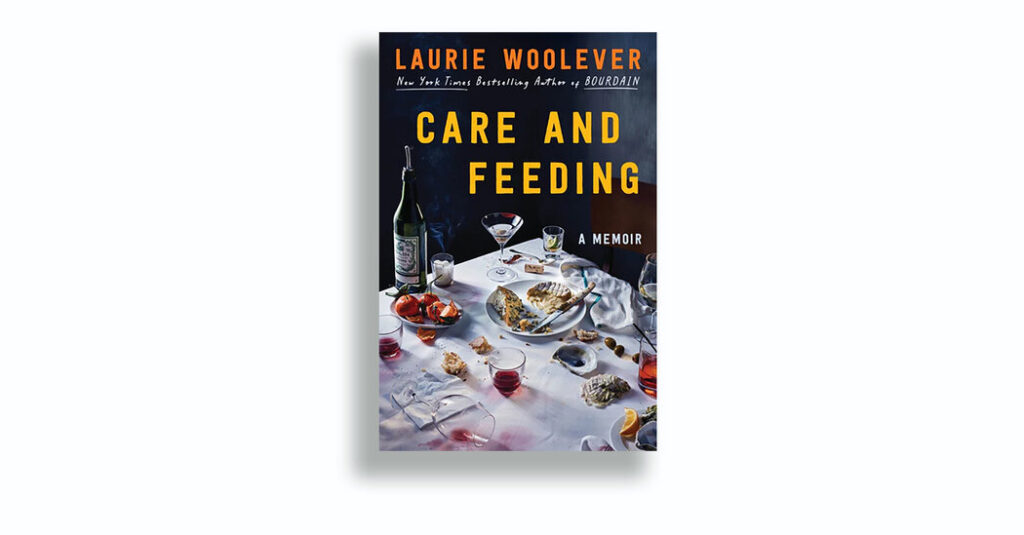From fine dining (“Care and Feeding”) to fine art (“The Maverick’s Museum”) to the golden age of glossy magazines (“When the Going Was Good”), our recommended nonfiction this week offers readers a chance to immerse themselves in the highs and lows of the leisure class. We also recommend a rape survival memoir, a history of the 1950s-era Red Scare and, in fiction, new novels by Stephen Graham Jones, Kristen Arnett, Vincenzo Latronico and Suzanne Collins, who’s back with a new entry in her best-selling “Hunger Games” series. Happy reading. — Gregory Cowles
Care and Feeding:
A Memoir
by Laurie Woolever
An intimate dispatch from an inside player in the fine dining world during its Bad Boy Chef era, this memoir by a former assistant to both Mario Batali and Anthony Bourdain offers a fundamentally kind and generous account of the restaurant scene. Woolever is a funny, acerbic and empathetic writer who is forthright about her own excesses; she knows she was a hot mess during much of her time in the food world, and as she musters the strength to quit drinking and get her act together, her book evolves into a satisfying redemption narrative. Read our review.
Perfection
by Vincenzo Latronico
Anna and Tom, the “creative professionals” at the center of Latronico’s trenchant novel, move from a “large but peripheral city in Southern Europe” to a late-19th-century flat in Berlin’s hippest neighborhood sometime during Angela Merkel’s second term, when the city emerged from a regional metropolis to the de facto capital of Europe. As a portrait of the cool kids who flocked to Berlin in that period, the book amounts to a biting and incisive satire of the expat scene. Read our review.
When the Going Was Good:
An Editor’s Adventures During the Last Golden Age of Magazines
by Graydon Carter, with James Fox
The former Vanity Fair editor (and co-founder of the late, great Spy magazine) reflects on an era’s power moves and expense-account adventures in this memoir evoking the golden age of New York City media. It’s the story of an underdog — the hockey-playing, Canadian-born son of an air force pilot — who morphs into a crisply dressed and flamboyantly maned overdog. It is, figuratively, the story of a young man who walks into Gotham barefoot and leaves, whistling, owning the keys to one of its castles. Read our review.
Red Scare:
Blacklists, McCarthyism, and the Making of Modern America
by Clay Risen
Risen, a reporter at The New York Times who has written a history of Theodore Roosevelt and the Rough Riders, among other books, here revisits the McCarthy-era Red Scare, portraying it as a cultural battle fueled by the tensions of the deepening midcentury Cold War. Meaty and powerfully relevant, the book draws implicit and unavoidable connections between that era’s political fights and our own. Read our review.
The Buffalo Hunter Hunter
by Stephen Graham Jones
Jones’s past fiction has confidently mashed up various horror genres with pointed explorations of Native American experience, and his new novel follows suit — via a Blackfeet man who becomes a vampire and seeks vengeance for the country’s sins. The book invites us to reflect on how the stories we tell about ourselves can be at once confessions and concealments; at the same time, Jones uses this framework to set up some entertainingly scary revelations. Read our review.
Saving Five:
A Memoir of Hope
by Amanda Nguyen
Shortly after Nguyen was raped by a fellow Harvard student, in 2013, she taped a sign to her mirror with a message that recurs several times in this spirited memoir of activism and recovery: “Never never never give up.” The rest of the book demonstrates how she faithfully enacted that mantra, leading to the passage of the landmark Sexual Assault Survivors’ Rights Act in 2016, even as Nguyen pursued a passion for space travel that will see her studying women’s health as an astronaut on a Blue Origin mission later this year. Read our review.
Stop Me if You’ve Heard This One
by Kristen Arnett
Set in Central Florida, Arnett’s novel follows a woman who spends her days employed at a fish and reptile store while pursuing, in her time off, her true calling: clowning. When she meets and falls in love with a 50-something magician named Margot the Magnificent, madcap antics ensue, with a laid-back picaresque pace that still contains the plot elements you’re hoping for: the dangling lure of the big audition, conflict with disapproving family, money problems and a satisfying quotient of good sex scenes. Read our review.
Sunrise on the Reaping
by Suzanne Collins
In her second prequel to the blockbuster “Hunger Games” trilogy, Collins takes up the story of Haymitch Abernathy, the jaded, alcoholic, fiercely devoted mentor who coached Katniss Everdeen to success in the original series. In expanding the story of how the teenage Haymitch won the 50th Hunger Games only to find, upon his return home, a Capitol-inflicted tragedy, Collins paints a shrewd portrait of the machinery of propaganda and how authoritarianism takes root. Collins has not lost her flair for the grisly, but what saves her work from veering into torture porn is the ferocious humanity with which she imbues her characters. Read our review.
The Maverick’s Museum:
Albert Barnes and His American Dream
by Blake Gopnik
Gopnik’s vivid, engrossing biography of the art-world contrarian Albert C. Barnes — the man behind the venerated Barnes Collection in Philadelphia — presents him as contradictory, intriguing and often infuriating. In Gopnik’s words, Barnes was a “tyrannical egalitarian,” a “patriarchal feminist” and a “Gilded Age progressive” who was committed to bringing art to the American people. Read our review.
